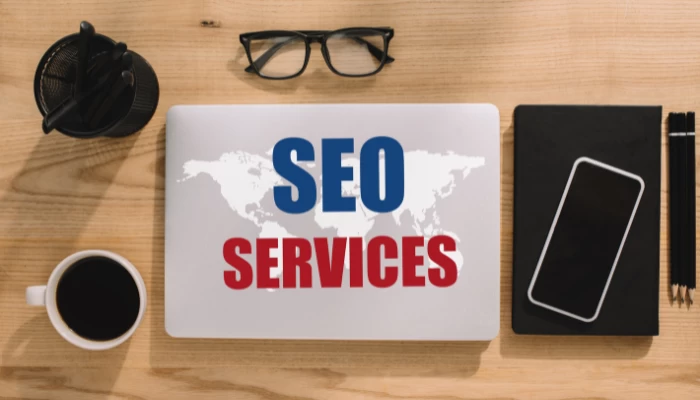Local Pro1’s Ultimate Guide to SEO for Landscapers
Local Pro1's Ultimate Guide to SEO for Landscapers
SEO for landscapers is a specialized approach to improving the online visibility and search engine rankings of landscaping businesses. In today’s digital age, where consumers rely heavily on search engines like Google to find local services, optimizing a landscaper’s online presence has become essential for attracting customers and staying competitive in the industry. SEO for landscapers involves implementing various strategies and techniques to ensure that a landscaper’s website ranks high in relevant search results, ultimately driving more traffic, leads, and business growth.

Landscaping SEO Tips
Keyword Research and Selection:
Identifying Relevant Keywords for Landscaping Businesses:
When conducting keyword research for landscaping businesses, it’s crucial to focus on terms that potential customers are likely to use when searching for landscaping services. Start by brainstorming general terms like landscaping services,landscape design, and gardening. Then, delve deeper into specific services you offer, such as lawn maintenance,tree trimming,hardscaping, or irrigation installation. Additionally, consider location-based keywords such as landscaping services in to target local customers.
Long-tail Keyword Utilization:
Long-tail keywords are more precise, lengthier phrases with greater conversion rates compared to search volume. For a landscaping business, long-tail keywords can be highly effective in attracting qualified leads. Examples include residential landscaping design near me,drought-resistant landscaping ideas, or low-maintenance garden landscaping services. Incorporate these long-tail keywords naturally into your website content, blog posts, and meta tags to improve your chances of ranking for them in search results.
On-page Optimization Techniques:
Optimizing Title Tags and Meta Descriptions:
Title tags: Meta descriptions can affect click-through rates (CTR) even if they have no direct effect on rankings. Optimizing title tags involves including relevant keywords related to the content of the page while making sure they are compelling and descriptive. Title tags should ideally be between 50-60 characters to ensure they are fully displayed in search results.
Meta descriptions: Meta descriptions are summaries of a web page’s content that appear below the title tag in search results. Although meta descriptions don’t directly impact rankings, they can influence click-through rates (CTR). Optimizing meta descriptions involves crafting concise, engaging descriptions that accurately represent the page’s content and include relevant keywords. Meta descriptions should ideally be between 150-160 characters.
Creating High-Quality Content:
High-quality content is essential for both user engagement and search engine optimization (SEO). Search engines prioritize content that is relevant, authoritative, and valuable to users. When creating content, focus on providing comprehensive information that addresses users’ needs and queries. Incorporate relevant keywords naturally throughout the content to improve its visibility in search results. Content should be well-structured, easy to read, and formatted with appropriate headings, bullet points, and multimedia elements (such as images and videos) to enhance user experience. Regularly updating and refreshing content also signals to search engines that the website is active and relevant.
Off-page Optimization Strategies:
Building Quality Backlinks from Relevant Sites:
- Backlinks, or inbound links, are crucial for SEO as they indicate to search engines that your site is credible and authoritative.
- Concentrate on obtaining backlinks from reliable and pertinent websites in your field or sector.
- Quality matters more than quantity. A few high-quality backlinks from authoritative sites can be more beneficial than numerous low-quality ones.
- Consider various methods for acquiring backlinks, such as guest blogging, broken link building, and reaching out to influencers or industry experts for collaborations.
Leveraging Social Media Platforms:
- Social media networks provide excellent chances to advertise your content and website, build brand recognition, and boost traffic.
- Establish a strong presence on relevant social media channels where your target audience is active.
- Share engaging and informative content regularly to attract followers and encourage shares, likes, and comments.
- Actively engage with your audience by responding to comments, messages, and mentions promptly.
- Utilize social media advertising options to reach a wider audience and drive targeted traffic to your website.
Local SEO Optimization:
Setting Up Google My Business Profile:
Google My Business (GMB) is a free tool that allows businesses to manage their online presence across Google, including Search and Maps. To optimize your GMB profile:
Claim your business listing: Visit the Google My Business website and claim your business listing if it hasn’t been done already.
Provide accurate information: Ensure that your business name, address, phone number (NAP), website URL, and business hours are accurate and up to date.
Add photos and videos: Visual content can help attract potential customers. Upload high-quality photos and videos showcasing your products, services, and premises.
Write a compelling business description: Craft a concise and informative business description that includes relevant keywords related to your industry and offerings.
Select relevant categories: Choose categories that accurately represent your business to improve your chances of appearing in relevant search results.
Utilize additional features: Take advantage of features like posts, Q&A, and messaging to engage with potential customers and provide them with helpful information.
Encouraging Customer Reviews and Testimonials:
Positive reviews and testimonials can significantly impact local search rankings and influence potential customers’ decisions. Here’s how to encourage and manage customer reviews:
Provide excellent products and services: The best way to garner positive reviews is by consistently delivering exceptional experiences to your customers.
Ask for reviews: Encourage satisfied customers to leave reviews by politely asking them after a successful transaction or interaction. You can include a call-to-action in follow-up emails or on receipts.
Make it easy to leave reviews: Provide clear instructions on how customers can leave reviews on platforms like Google, Yelp, and Facebook. Include direct links when possible.
Respond to reviews: Monitor and respond to customer reviews promptly, whether they’re positive or negative. Thank customers for their positive feedback and address any concerns or issues raised in negative reviews professionally and courteously.
Showcase reviews on your website: Display positive reviews and testimonials prominently on your website to build trust with potential customers and reinforce your credibility. Local Pro1 provides the best service related to SEO for Landscapers.
Why Do You Need SEO?

SEO for landscapers offers a multitude of benefits, with increased online visibility being one of the most significant. Here’s why SEO is crucial for landscapers:
Increased Online Visibility: SEO techniques help your landscaping business rank higher in search engine results pages (SERPs). When potential customers search for landscaping services online, they’re more likely to discover your business if it appears on the first page of search results. Improved visibility means more opportunities for potential customers to find and engage with your services, leading to increased website traffic and inquiries.
Targeted Traffic Generation: SEO allows you to attract highly targeted traffic to your landscaping website.You can make sure that people who are actively looking for landscaping services in your area notice your website by optimizing it for relevant keywords connected to those services. This targeted traffic is more likely to convert into leads and customers since they are already interested in what you offer, resulting in a higher return on investment (ROI) for your marketing efforts.
Enhanced Brand Credibility: A strong SEO strategy not only improves your search engine rankings but also enhances your brand’s credibility and authority in the eyes of potential customers. When your landscaping website appears prominently in search results, it signals to users that your business is trustworthy and reputable. Furthermore, you enhance the trustworthiness of your brand in the landscaping sector by continuously producing high-quality content, obtaining backlinks from reliable websites, and upholding a strong online reputation.
Competitive Advantage in the Market: In today’s digital age, having a robust SEO strategy is essential for staying competitive in the landscaping market. You can obtain a competitive edge by drawing in more leads and clients to your company by ranking higher in search results than your rivals. Furthermore, you may maintain an advantage over competitors and establish your landscaping company as a market leader by consistently improving your website and keeping up with industry developments.
SEO Services for Landscapers

Choosing the Right SEO Service Provider:
Selecting the right SEO service provider is essential for achieving the desired results. Here are some factors to consider when choosing an SEO for your landscaping business:
Experience and Expertise: Look for an SEO agency or consultant with experience in working with landscaping businesses. They ought to have a track record of accomplishment in this particular field.
Portfolio and Case Studies: Review the provider’s portfolio and case studies to gauge their success in implementing SEO strategies for landscaping businesses.
Customized Strategy: Ensure the SEO provider offers a customized strategy tailored to your landscaping business’s goals, target audience, and competitive landscape. Avoid one-size-fits-all approaches.
Transparent Communication: Choose an SEO provider that communicates transparently and keeps you informed about the progress of your SEO campaign.
Ethical Practices: Verify that the SEO provider follows ethical SEO practices and adheres to search engine guidelines. Avoid providers that engage in black hat techniques, as they can result in penalties and harm your website’s reputation.
Reporting and Analytics: Look for an SEO provider that provides comprehensive reporting and analytics to track the performance of your SEO campaign.
Cost-Effectiveness: While cost is important, prioritize value over price when choosing an SEO provider. Consider the potential return on investment (ROI) and the long-term benefits of partnering with a reputable provider.
Case Studies: Successful Implementation of SEO for Landscapers:
XYZ Landscaping: By implementing a comprehensive SEO strategy focused on local optimization and content marketing, XYZ Landscaping increased organic traffic. This resulted in a significant boost in leads and conversions, driving substantial revenue growth.
ABC Garden Design: With targeted keyword research and on-page optimization, ABC Garden Design improved its search engine rankings for competitive keywords related to landscape design and maintenance. As a result, they experienced a increase in website visibility and a surge in inquiries from potential customers.
LMN Hardscaping: Through a strategic link-building campaign and website performance optimization, LMN Hardscaping enhanced its online presence and credibility within the landscaping industry. This led to a notable increase in website traffic and inquiries for their hardscaping services.
Conclusion
SEO for Landscapers is a crucial aspect for landscapers looking to enhance their online presence and attract more clients. By implementing effective SEO strategies, landscapers can improve their visibility on search engines like Google, Bing, and Yahoo, thereby increasing their chances of being found by potential customers in need of landscaping services. Feel free to contact us for any type of query or service related to SEO for Landscapers.
FAQs
What Is Seo For Landscapers?
SEO (Search Engine Optimization) for landscapers involves strategies and techniques aimed at improving the online visibility and search engine ranking of landscaping businesses. It encompasses various tactics to ensure that potential customers can easily find your landscaping services when searching online.
Why Is Seo Important For Landscapers?
SEO is crucial for landscapers because it helps your business appear prominently in search engine results when potential customers are looking for landscaping services. By optimizing your website and online presence, you can attract more organic traffic, increase leads, and ultimately grow your customer base.
What Are Some Essential Seo Strategies For Landscapers?
Essential SEO strategies for landscapers include optimizing your website with relevant keywords related to landscaping, creating high-quality content, optimizing for local search, building backlinks from reputable sources, and ensuring your website is mobile-friendly.
How Long Does It Take To See Results From Seo Efforts For Landscapers?
The timeline for seeing results from SEO efforts can vary depending on various factors such as the competitiveness of the market, the current state of your website, the effectiveness of your SEO strategies, and the consistency of implementation. Generally, it may take several months to start seeing significant improvements in search engine rankings and organic traffic.
Can I Do Seo For My Landscaping Business On My Own, Or Should I Hire A Professional?
While it’s possible to implement some basic SEO techniques on your own, hiring a professional SEO agency or consultant can offer several advantages. SEO professionals have the expertise and experience to develop and execute comprehensive SEO strategies tailored to your landscaping business, ultimately yielding better results in the long run.
